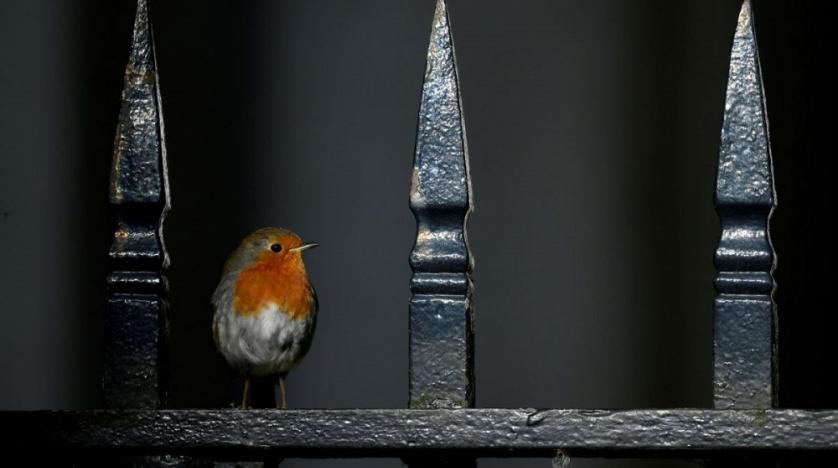‘Magnetic Living Compass’ Guides Birds During Migration
Variety 07:26 PM - 2021-06-27
.
The mystery of how birds migrate long distances over land and sea is a step closer to being cracked. By studying robins, scientists have found clues to how birds sense the Earth’s magnetic field.
Just as you might reach for a magnetic compass to find which way is north or south, birds are thought to have an in-built “living compass.” A chemical in the eye that is sensitive to magnetism could be proof of this theory, according to a new study published in the journal Nature.
Peter Hore, professor of chemistry at the University of Oxford, said it could be that birds can “see” the Earth’s magnetic field, although we don’t know that for sure. “We think we may have identified the molecule that allows small migratory songbirds to detect the direction of the Earth’s magnetic field, which they undoubtedly can do, and use that information to help them navigate when they migrate thousands of kilometers,” he told BBC News.
For decades, scientists have been investigating how animals, such as birds, sea turtles, fish and insects, sense the Earth’s magnetic field and use it to find their way. The European robin is a stalwart of studies into the in-built “living compass” birds. One chemical contender is a molecule in the retina of the eye known as a cryptochrome.
The Oxford team studied a purified form of the molecule in the lab to see whether it was fit for purpose as a magnetic sensor. They found it had the ability to form pairs of “radicals” that have high magnetic sensitivity. Hore said the mechanism they have been investigating involves magnetically-sensitive chemical reactions initiated by light inside the bird’s eyes - in their retinas, to be precise.
“It looks possible - and I would put it no stronger than that at the moment - that these highly-specialized chemical reactions could give the bird information about the direction of the Earth’s magnetic field and in that way constitute a magnetic compass,” he explained.
The robin is a familiar sight in many UK gardens, with most spending the winter in Britain.
PUKmedia \ Asharq Al-Awsat
More news
-
Media & Awareness Bureau Receives Russian CG
08:28 PM - 2024-04-18 -
PUK President: We Support Yazidis in Protecting their Rights
04:51 PM - 2024-04-17 -
DPM Talabani: Elections Must Be Held Promptly Without Further Delay
05:53 PM - 2024-04-16 -
PUK & UNAMI Emphasise Holding Timely Elections
05:28 PM - 2024-04-16
see more
Leadership Council Publishes Official Statement on Thursday’s Meeting
07:48 PM - 2024-04-18
IHEC Determines Kurdistan Parliamentary Election Campaign Date
01:37 PM - 2024-04-18
PUK President: Elections Would Develop Our Experience
05:06 PM - 2024-04-17
The 8th Sulaymaniyah Forum Takes Place Today
10:33 AM - 2024-04-17
Most read
-
IHEC Determines Kurdistan Parliamentary Election Campaign Date
Kurdistan 01:37 PM - 2024-04-18 -
Leadership Council Publishes Official Statement on Thursday’s Meeting
P.U.K 07:48 PM - 2024-04-18 -
PUK President: PUK is Ready for Elections
P.U.K 09:29 PM - 2024-04-18 -
Media & Awareness Bureau Receives Russian CG
P.U.K 08:28 PM - 2024-04-18






 Application
Application


